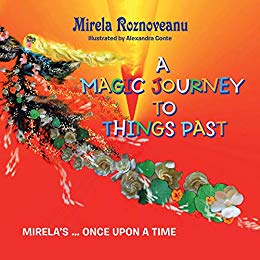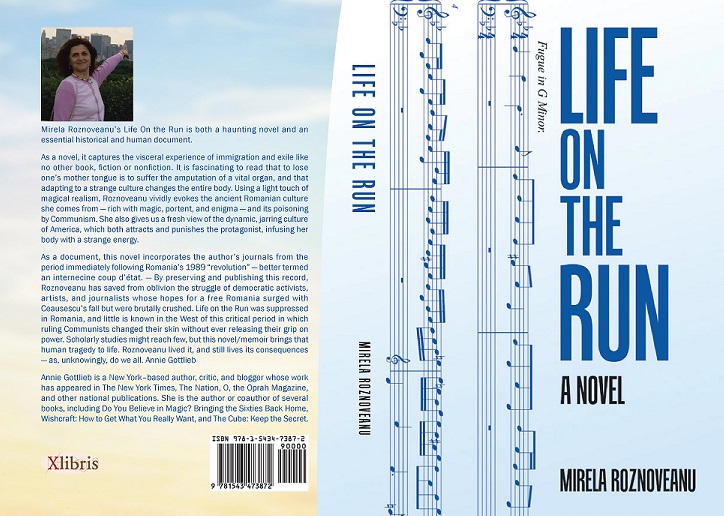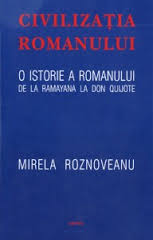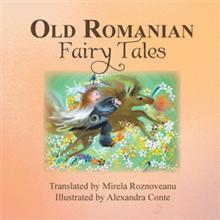Romanian-American writer Mirela Roznoveanu

Born in Romania, Mirela Roznoveanu was a recognized literary critic at 24. She has published volumes of essays, literary criticism, poetry, and novels. She has been known as a noted dissident writer and journalist involved in the 1989 Revolution. In 1991, she came to the U.S. where she continued to be prolific in her writings.
References: Who’s Who in America; Who’s Who in American Law; Who’s Who of American Women; Who’s Who in the World; The 2018 Albert Nelson Marquis Lifetime Achievement Award, Gale Encyclopedia of Multicultural America. Romanian Americans (see p. 16 Notable Individuals).
Recent contributions: https://wp.nyu.edu/mroznoveanu/2015/10/21/videos-interviews-speeches/
Interviews for RTVNY: https://wp.nyu.edu/mroznoveanu/2015/10/21/videos-interviews-speeches/ More at the RTVNY and on Internet Archives (video archive of notable Americans of Romanian origin): https://archive.org/details/@vlachica

Epic Stories presents the writer’s epic ego engaged in the journey across the ocean as it transforms into an act of self-construction instead of a “suicide mission,” as it was initially intended. The book gathers Mirela Roznoveanu’s literary voices for the first time, from poetry and literary criticism to journalism, fiction, and travel writing. In her early seventies, an immigrant little known to the American public while an established writer in Romania, she introduces her autobiographical fiction about a life in constant search for new ways of artistic expression, aesthetic values, and social justice.
Interviewed by Bianca Schulze — A Magic Journey to Things Past


Life On the Run. A Novel, 2018– .LIFE_ON_THE_RUN — book block in pdf The merged pdf file of Life On the Run
This novel set in New York and Bucharest provides a fascinating account of Angela, running from communist Romania to US right at the cusp of early 1990s. Leaving a revolution and a not yet post-communist country, Angela gets to live inside an intricate web of political power and secret police practices, in a fascinating story of life, survival and dramatic changes whether personal or social. The novel reads beautifully, at sharp and dynamic pace, moving the story along in a high-quality thriller format. A must read! Noemi Marin
Mirela Roznoveanu’s Life On the Run is both a haunting novel and an essential historical and human document. As a novel, it captures the visceral experience of immigration and exile like no other book, fiction or nonfiction. It is fascinating to read that to lose one’s mother tongue is to suffer the amputation of a vital organ, and that adapting to a strange culture changes the entire body. Using a light touch of magical realism, Roznoveanu vividly evokes the ancient Romanian culture she comes from — rich with magic, portent, and enigma — and its poisoning by Communism. She also gives us a fresh view of the dynamic, jarring culture of America, which both attracts and punishes the protagonist, infusing her body with a strange energy. As a document, this novel incorporates the author’s journals from the period immediately following Romania’s 1989 “revolution” — better termed an internecine coup d’état. — By preserving and publishing this record, Roznoveanu has saved from oblivion the struggle of democratic activists, artists, and journalists whose hopes for a free Romania surged with Ceausescu’s fall but were brutally crushed. Life on the Run was suppressed in Romania, and little is known in the West of this critical period in which ruling Communists changed their skin without ever releasing their grip on power. Scholarly studies might reach few, but this novel/memoir brings that human tragedy to life. Roznoveanu lived it, and still lives its consequences — as, unknowingly, do we all. Annie Gottlieb
William James Austin: “Mirela Roznoveanu’s poetry is “innovative” where it counts, I think — the imagery is really stunning. I can’t imagine anyone with any sensitivity reading her work, and not experiencing a strong emotional response.” Elizabeth Gamble Miller: “What I find fascinating are the startling images gleaned from such a breadth of human experience. The poetry is of such depth and complexity while not in the least hermetic. It is as if the image is the precise one to stir the conflicting emotions that permeate the poems. Mirela Roznoveanu’s world travels and breadth of literary experience carry a resonance that inspires further exploration into the poetic line. Without actually reading the Romanian I find the reading of her poetry and of Heathrow O’Hare’s translations as seamless. This is quite a remarkable accomplishment.”

–Serban Axinte interview pentru revista Cuvantul (Ro); O istorie a romanului de la Ramayana la Don Quijote de Serban Axinte(Ro) https://www.observatorcultural.ro/articol/o-istorie-a-romanului-de-la-ramayana-la-don-quijote-2/; https://www.ceeol.com/search/article-detail?id=38066 ;
–O sinteza majora de Paul Cernat (Ro) https://www.ziaruldevrancea.ro/jurnalism-cetatenesc/19981-civilizatia-romanului.html#!;
–Mihaela Ursa: Romanul – „a message in a bottle” https://metacritic.wordpress.com/2011/10/03/romanul-%E2%80%93-%E2%80%9Ea-message-in-a-bottle%E2%80%9D/ ;
–Mihaela Ursa: Noul materialism estetic?”
—Vladimir Wertsman about The Civilization of the Novel The Civilization of the Novel: A History of Fiction Writing from Ramayana to Don Quixote. Bucharest: Editura Cartex (Cartex Publishing House) 2008, 694 pp.ISBN 978-973-88670-79. The study analyzes epic architectures (called in our civilization as novels) developed by various civilizations over the last five millennia. The focus is on the novel-like aesthetic works overlooked in western exegeses and on those which have never been developed or experimented within western culture. The essays expose different sets of values, a new kind of theoretical and critical discourse accommodating epic architectures developed in practically all civilizations and cultural periods: Vedic, Sumerian, Persian, ancient Egyptian, old Hebrews, classical Greek and Roman, down to European during Middle Ages, and further on to the early modernity of the Renaissance. The Civilization of the Novel is a piece of solid scholarship, based on a wealth of excellent bibliographic sources (mostly in English, but also in French, Spanish, Italian, German), accompanied by over 1,000 footnotes, extensive index, and abstracts in English, French, and German. The study is a valuable addition to the study of comparative literature around the world. The book received the 2008 Award of the Romanian Society of Comparative Literature and the 2008 Romanian Academy Award. The Romanian born author is a novelist, literary critic, poet, and faculty member of the New York University School of Law. Vladimir F. Wertsman, the Chair of the Publishing and Multicultural Materials Committee of the Ethnic Materials and Information Exchange Round Table of the American Library Association. (2008)
“The most profound Buddhist scriptures were translated from Sanskrit to Chinese without any bias from the translator and it also involved understanding cross cultural communications. I disagree that using Romanian as a base language is a disadvantage. It is vital for a reader to understand that it took a person with a Romanian culture with the right ingredients to grasp the deep meaning of novels transmitted for 10,000 years of human civilization.” Ted Tumbale

Presentation; Interview; Youtube videoclip http://bookstore.xlibris.com/Products/SKU-0111908017/Old-Romanian-Fairytales.aspx http://www.thechildrensbookreview.com/weblog/tag/mirela-roznoveanu Amazon.com Barnes&Noble Booksamillion.com iUniverse Alibris
Romanian Fairy Tales Lecture Evening